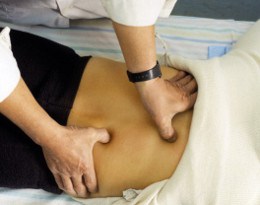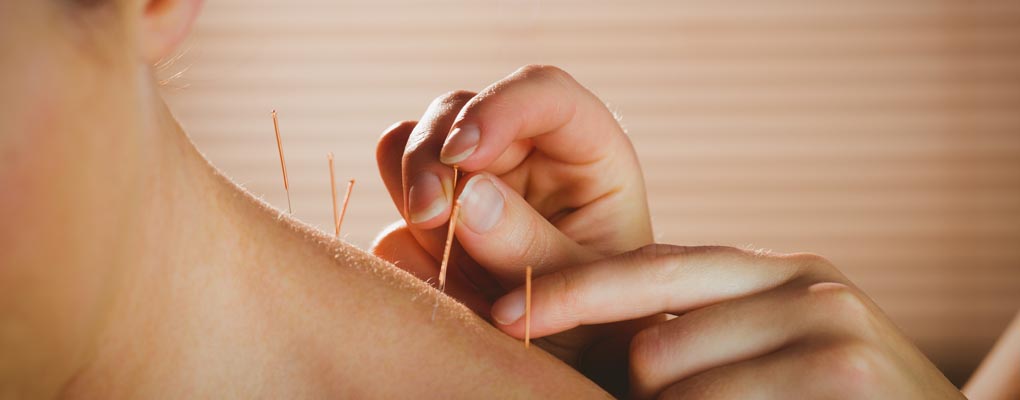The Science and Scientific Research Evidence for Acupuncture Treatment of Common Health Conditions
In part one we saw how science and scientific research has made good progress in explaining how acupuncture might positively affect the nervous, cardiovascular and immune systems of the body. Currently, the scientific evidence reinforces claims made by acupuncturists for successfully helping patients suffering from a variety of conditions, which involve a number of body systems.
Let’s take a look at the scientific evidence for the use of acupuncture for different types of health condition. Links to relevant scientific research papers are included.
Important: Please Read – Where no or little research evidence exists, this does not mean that acupuncture couldn’t help you. Usually, a lack of evidence simply reflects the lack of research which has taken place. Often, acupuncturists (including me) successfully help people in practice, even though actual ‘research evidence’ is lacking for some of the conditions patients present with. Call us on 01992-535970 if you are unsure whether acupuncture might help you. We use our considerable experience of working with patients who have suffered with a variety of symptoms and conditions to determine whether acupuncture might help you.
Muscular, Joint and Skeletal Conditions
Neck Pain

The science suggests that acupuncture is useful for chronic neck pain, that is neck pain of longer duration (1). Acupuncture seems to be more effective than the typical care given for this type of condition, e.g., rest, painkillers (2). Research is lacking where neck pain of short duration is concerned, but the evidence from primary care settings suggest patients show a good response to acupuncture for recent-onset headache (3).
Low Back Pain (including during pregnancy)
The evidence is good. One meta-analysis from 2005 demonstrated that acupuncture is superior to rest, painkillers etc for low back pain (4). A systematic research review carried out around the same time by the renowned Cochrane Collaboration drew comparable conclusions (5). Likewise, a UK study from a primary care setting from 2005 found acupuncture had longer-term effects on control of low back pain (6).
The evidence is also strong for use of acupuncture on patients with low back and/or pelvic pain in pregnancy. One study showed that acupuncture plus standard care was superior to standard care alone (7). An earlier study demonstrated acupuncture as superior to physiotherapy for pain and disability reduction (8).
Guidelines for early management of persistent low back pain issued by the UK National Institute for Health and Care Excellence (NICE) in May 2009 listed acupuncture as a recommended intervention.
Guidelines for chronic low back pain issued by NICE in March 2013 suggested acupuncture (notably electrical stimulation with acupuncture) as indicated for this condition.
See also the section on chronic pain below.
Shoulder Pain
A high-quality research study indicated that acupuncture is effective for tendonitis (inflamed tendons) problems around the shoulder (9).
Elbow Pain
A systematic research review from 2004 found acupuncture useful for tennis elbow (10). Earlier studies had come to a similar conclusion (11,12).
Long-term Knee Pain and Hip Pain
A 2007 study looking at chronic knee pain, related mainly to osteoarthritis, found acupuncture to be a superior treatment for reducing pain and improving disability. The benefits were short- and long-term (>6 months) and were superior to usual care, e.g., painkillers, rest (13). A 2006 study found similar results for acupuncture use with hip pain (15).
A more recent 2013 research review seems to reinforce the idea of acupuncture as beneficial for relief of pain due to osteoarthritis of the knee (40).
See also the section on chronic pain below.
Fibromyalgia and Connective Tissue Pain
Although the current research evidence is moderate only, in clinical practice these conditions can respond very well to acupuncture. One study from 2006 found electroacupuncture (acupuncture used with a mild, electric current) to be useful in Fibromyalgia (14).
Chronic Pain
Chronic (long-term) pain is a feature of many health conditions.
Until recently, the research evidence for acupuncture treatment of chronic pain was quite weak, in some cases possibly due to methods used in research. Evidence was lacking despite the fact that many acupuncturists in their clinic (including Advance Clinic) claim success in this area.
However, the June 2014 UK House of Commons Health Committee report on Managing the Care of People with Long-term Conditions noted that ‘There is good evidence that good acupuncture will take away pain in a variety of different conditions’ (p.46).
Moreover, a 2014 article in the British Journal of General Practice recommended acupuncture for short-term relief of pain in patients with chronic low back pain or osteoarthritis (38).
Likewise, a 2012 systematic research review looked at the evidence for acupuncture treatment of four chronic conditions: neck and back pain, osteoarthritis, chronic headache and shoulder pain (39). Based on their findings, the authors argued that acupuncture is an effective treatment for chronic pain. A 2014 update to this research found strongly in favour of acupuncture (41).
Headaches
Migraine
Several key studies appear to show the benefit of acupuncture. In one, acupuncture was superior to usual GP care and promoted less pain, better quality of life and fewer days with headache (16). Another showed similar results (17). A few other studies have been more inconclusive, though demonstrating a trend in favour of acupuncture (18).

Guidelines on headache issued by the UK National Institute for Health and Care Excellence (NICE) in September 2012 recommended acupuncture as a prophylactic (preventative) treatment for migraine headache.
Tension Headache
Acupuncture has been found to be useful with both chronic and episodic tension-type headache, especially where symptoms are not too severe and are associated with neck and shoulder muscle tension (19).
The guidelines on headache issued by the UK National Institute for Health and Care Excellence (NICE) in September 2012 recommended acupuncture as a prophylactic (preventative) treatment for tension-type headache.
Reproductive Health
Painful Periods
A 2003 research review found acupuncture and acupressure could have a positive effect. The report acknowledged that more research was required (26).
Hot Flushes (post-menopausal, cancer-related)
Good quality research exists in this area. Several studies suggest a positive effect for acupuncture and electroacupuncture (acupuncture plus a mild electric current) in reducing hot flushes (27,28,29).
Infertility
The evidence is mostly positive, but more research is required (30). Early testing suggests a role for electroacupuncture (acupuncture plus a mild electric current) in ovulation problems related to PCOS (Polycystic Ovarian Syndrome).
IVF (In-vitro Fertilisation) studies suggest acupuncture may influence the pregnancy rate during the embryo-transfer phase of IVF. Normal acupuncture and ear acupuncture appeared useful in this respect (31).
During Pregnancy
Based on a 2004 research review, there is evidence that acupuncture might reduce labour pain (32). There’s also evidence that acupuncture lessens the need for epidural analgesia (33) and may actually shorten labour (34).
See also the section above on low back pain during pregnancy. Also, see the next section on nausea and vomiting.

Nausea and Vomiting (post-operative, early pregnancy, post-chemotherapy)
Generally, the science supports use of acupuncture in this area, including use of acupressure. Some studies suggest acupuncture is more effective in tackling nausea, others vomiting, and yet others, both (22,23,24,25).
Urinary Infections and Bladder Irritation
Women with bladder irritation causing urgency, urge incontinence, increased frequency of urination and urination at night did as well with acupuncture as with the standard use drug oxybutinin according to one study. Additionally, the acupuncture recipients had far fewer adverse side-effects compared to the drug group (35).
An study of women with recurrent urinary infection also found in favour of acupuncture, with 73% of those receiving acupuncture free of infection, as compared to 52% of those who did not (36)
Post-operative Pain
Many research studies exist and many suggest acupuncture may act to reduce the need for patients to take analgesics following surgery. One study using ear acupuncture demonstrated a 30% reduction in pain levels in 3 days (20).
Asthma
The research evidence is unclear at this stage, again despite anecdotal reports of success in acupuncture clinics (including this one). Better quality research looking at acute asthma suggest some effect for acupuncture (21).
Addictions (Smoking, Alcohol, Illicit Drugs)
Despite anecdotal evidence of treatment success, the science results suggest caution at this stage. This particular group of patients have specific needs which makes adherence to acupuncture programmes (including research) problematic. More research is certainly required.
Skin Conditions
More scientific research in this area is required. Anecdotal evidence from clinics (including this one) is positive.
Tinnitus
The current evidence is either inconclusive or negative. A review of research carried out in 2000, however, suggests that acupuncture may help in individual cases (37)
Additional References
House of Commons Health Committee 2014 Managing the Care of People With Long-term Health Conditions. Volume 1. London: Stationary Office.
White, A, Cummings, M, & Filshie, J 2007 An Introduction to Western Medical Acupuncture. Edinburgh: Churchill Livingstone.
 Ready to banish pain and other symptoms? Ready to get active again?
Ready to banish pain and other symptoms? Ready to get active again?
Let us help you experience all round health, all year round! For quality advice and safe, effective treatment,
Call Advance Clinic Now:01992-535970
